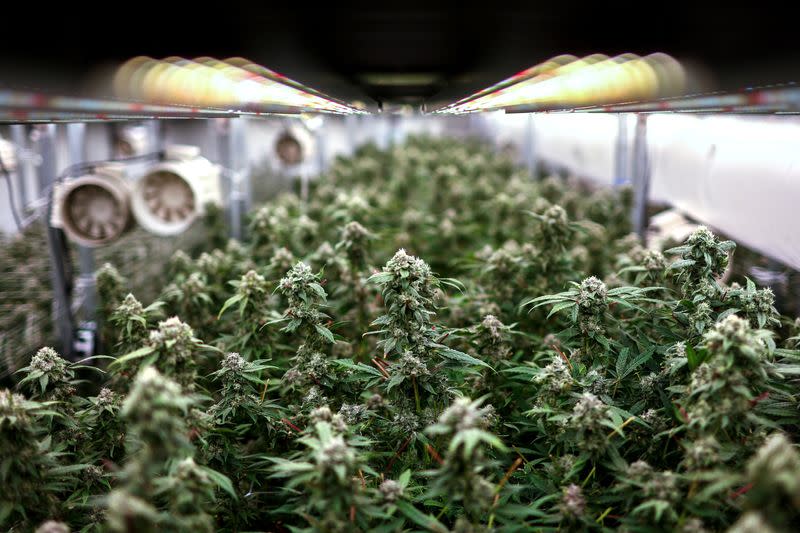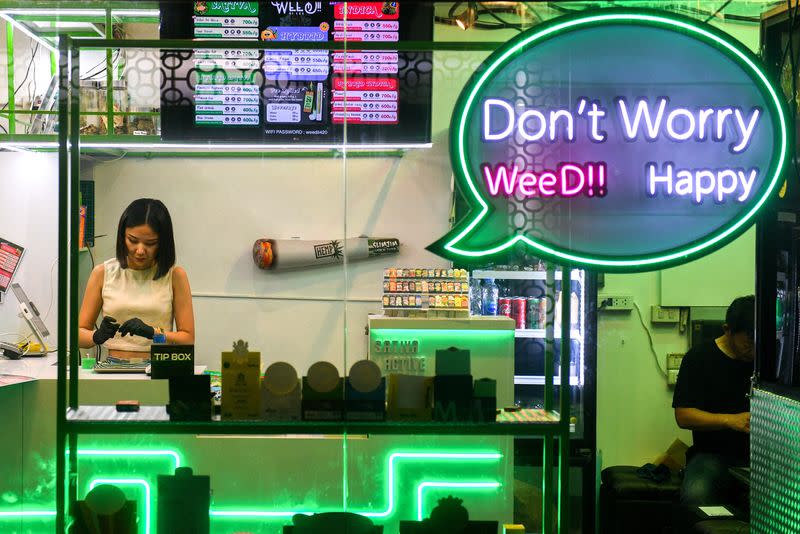Thailand seeks public opinion on draft to end recreational cannabis use
BANGKOK (Reuters) - Thailand is canvassing public opinion on a draft bill outlawing recreational use of cannabis after more than a year in which marijuana-related businesses flourished following legalisation and insufficient regulation.
The first Southeast Asian nation to decriminalise cannabis in 2021, Thailand spawned an industry worth up to a projected $1.2 billion in the next few years, as thousands of dispensaries sprang up, along with spas, restaurants and festivals.
Rushed and piecemeal rules adopted within a week of decriminalisation sought to curb its use but left loopholes for recreational use.
The changes, aiming to deliver on an election promise, come after Prime Minister Srettha Thavisin spoke out against recreational use amid concerns of drug abuse and vowed that his government would only support medical use.
"We drafted this law to prohibit the wrong usage of cannabis," Health Minister Cholnan Srikaew told media this week.
"All recreational usage is wrong."
Published on the health ministry's website on Tuesday, the new draft will allow only medical and health uses of cannabis, while outlawing all types of recreational use.
It provides for fines of up to 60,000 baht ($1,700) for recreational use while advertisement or marketing campaigns regardng such use could draw jail terms of up to a year or fines ranging as high as 100,000 baht.
It also toughens punishment for cannabis farming without a licence, ranging from jail terms of one to three years as well as fines from 20,000 baht to 300,000 baht.
The fate of unregulated weed shops and dispensaries is unclear, however, as well as the risks facing those who planted cannabis on a household scale - which is currently allowed after notifying authorities, though without requiring a permit.
The government did not immediately respond to a request for comment on the draft.
The deadline for public feedback is Jan. 23, after which the cabinet will weigh both the draft legislation and suggestions received before it goes to parliament for further deliberation.
($1=34.9400 baht)
(Reporting by Panarat Thepgumpanat and Panu Wongcha-um; Editing by Clarence Fernandez)



